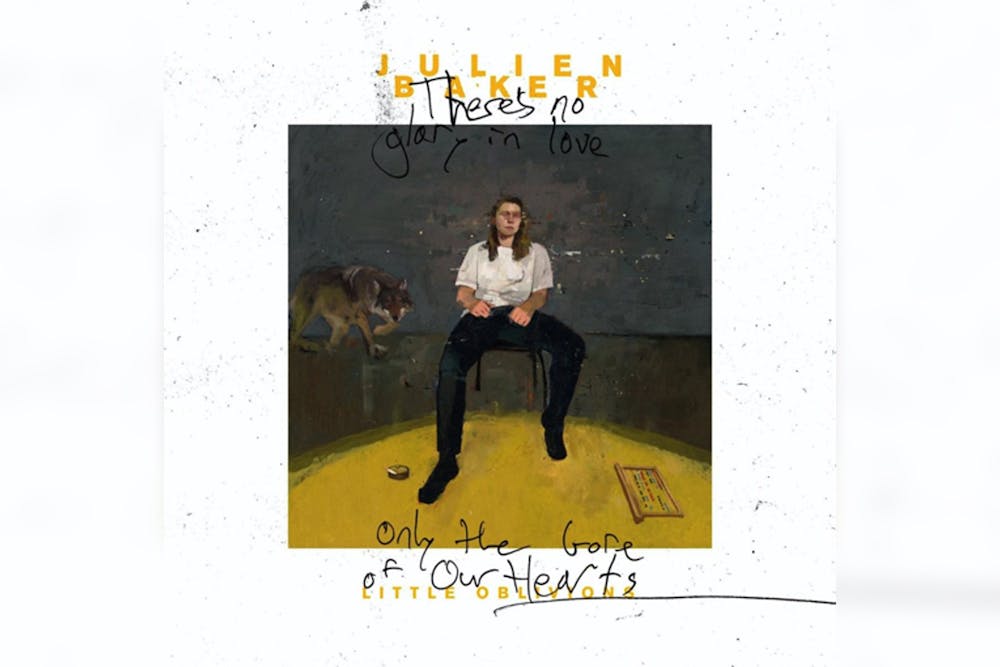The stigma surrounding mental health struggles has softened in recent years. But poor mental health is not always mental illness. People only want to talk about the struggles that are fixable, ones that can be tied up neatly with a little bow. Ones that have a definitive, happy ending.
But a lot of people won’t have those happy endings.
“Oh, it isn’t black and white,” Julien Baker sings on album opener “Hardline.” “What if it’s all black, baby? All the time.”
Baker’s third record “Little Oblivions” focuses on her depression and the various symptoms of it: alcoholism, loss of faith and suicidal thoughts. It’s difficult to listen to, but it’s deeply important to understand how mental illness works. It’s not the blues. It’s not romantic in the way it’s typically portrayed in television and movies. It’s harrowing, consistently painful, infiltrating and recoloring every aspect of daily life.
Many of the songs deal with Baker’s addiction and relapses.
“I miss it high,” Baker sings on “Faith Healer.” “How it dulled its error and the beauty. Now I see everything in startling intensity.”
Baker wrestles with her addiction, understanding how it has alienated her, trapped her in a bubble of agony. She’d do anything to get out of it, except change.
The chorus of “Faith Healer” is about Baker’s desire to accept help from anyone, even if that desire could inhibit any real progress.
“Faith healer, come put your hands on me. A snake oil dealer. I’ll believe you if you make me feel something.”
Misplaced faith is a large theme on the record. Friends and family can be supportive, but if they don’t understand the extent of the suffering they may not be able to provide much solace.
“The smoke alarm’s been going off for weeks. No one showed up. And half the time it isn’t what you think.”
Depression is isolating, difficult to understand. There are symptoms, but many of them can go unnoticed. It makes you feel helpless, doomed for eternity.
“Everything I do makes it worse,” Baker sings. “Human nature, call it a curse. Tired of collecting my scars and stories at the parties and bars. Trying to find a reason to fight. Someone’s got my head in a zip tie.”
“Little Oblivions” is a difficult listen. Certain lyrics could be triggering or make listeners uncomfortable. But it’s important to give mental illness a face. It’s important to harden abstract experience, make it concrete. Mental illness has entered the public consciousness, but more work needs to be done to make sure the masses can understand it.
Empathy is necessary. Comprehension is necessary. Hopefully “Little Oblivions” can open a door to more advanced conversations about mental illness. Depression and anxiety dominate the conversation, but there are a myriad of struggles facing thousands of people across the globe. We need to acknowledge them, not ignore them.




